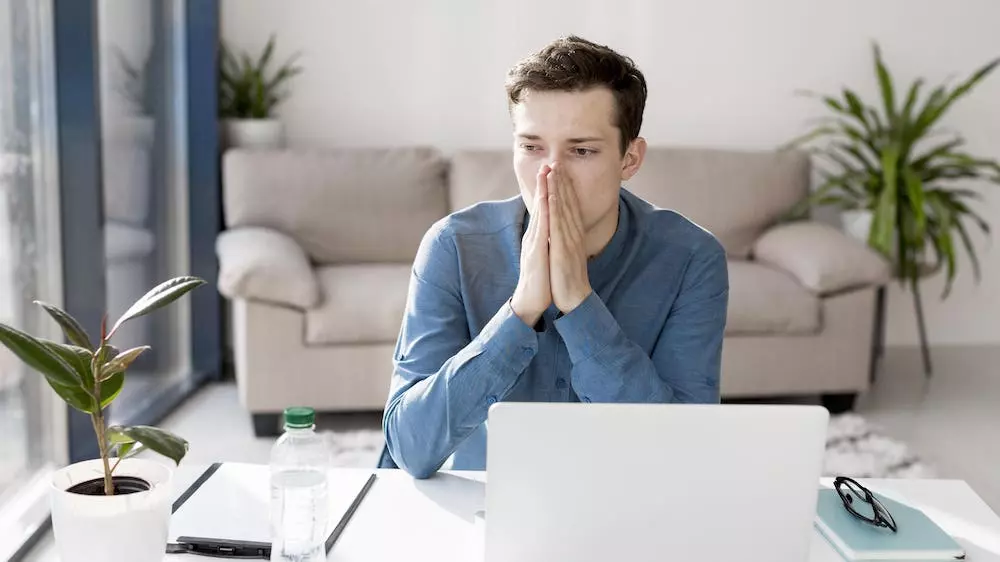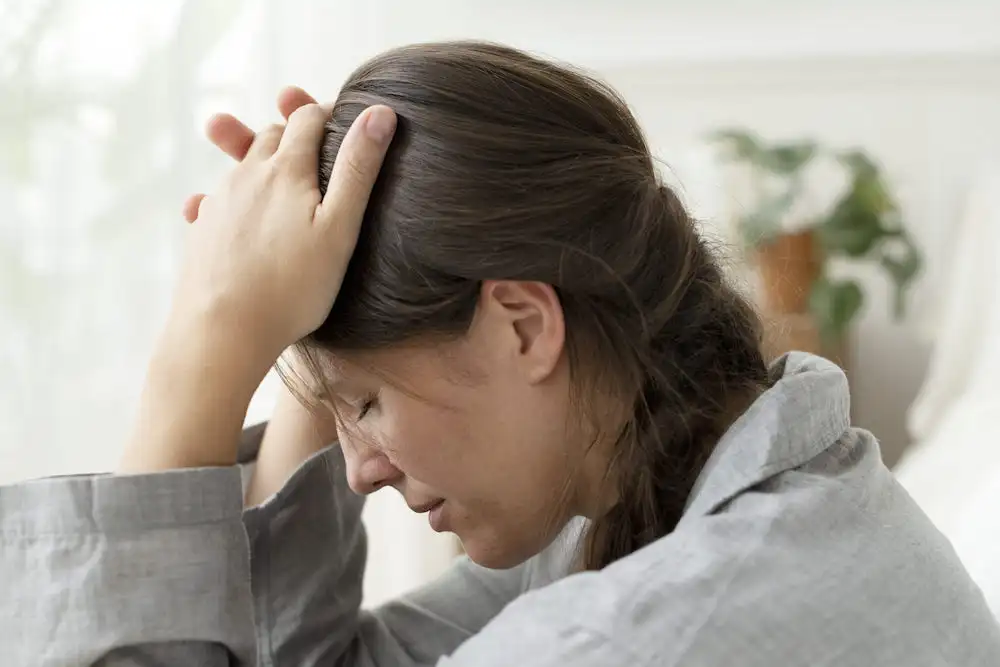Announcement
This article will provide comprehensive information on the roles and approaches of psychologists and psychiatrists in treating anxiety, helping them make an informed decision about which professional to consult for their specific needs.
Introduction
Psychologists and psychiatrists for anxiety have similar roles in helping you with your mental health. Psychologists focus on studying human behavior and using this information to diagnose and treat different conditions, whereas psychiatrists are primarily medical doctors who focus on the neurological and physiological issues that might contribute to those same mental health conditions.
Both psychologists and psychiatrists for anxiety focus on diagnosing and treating different types of anxiety disorders and can collaborate to provide well-rounded care if necessary.

What is Anxiety?
According to the National Institute of Mental Health, anxiety is a common feeling, something that everyone experiences to some degree.
For example:
Katie always wakes up on time and works hard during her job because she has a small amount of anxiety about missing work and, as a result, being unable to pay her bills.
Marcus is kind to his partner, not always saying what he thinks off the top of his head and helping around the house with their shared family chores because he knows that if he treats his partner poorly, it could ruin their relationship.
In these situations, anxiety is a normal part of daily life. Worries about money, health, or family encourage you to make good choices.
However, anxiety disorders are mental health disorders with severe enough symptoms that they can interfere with job or school performance, health, relationships, and daily life.
For example:
Katie has generalized anxiety disorder. She is so worried about waking up on time so that she doesn’t miss work that she can’t sleep at night, and because she can’t sleep at night, she misses her alarm. Katie has poor performance in the workplace because she is irritable and cranky from not being able to sleep.
Marcus has social anxiety. Marcus always worries about being in crowds, thinking that people will judge him and ridicule him, so he avoids social situations at all costs. As a result, he stays home, doesn’t socialize, and everyone at work thinks he’s rather rude. He never meets his partner, and he struggles with loneliness and isolation.
Acute anxiety, the kind demonstrated in the first examples, ebb and flow. If you have an upcoming presentation at work, you might experience higher anxiety. But legitimate anxiety disorders do not necessarily ebb and flow, and they do not always have a direct cause. Katie might experience panic attacks for no reason and find that she is unable to get to work or take care of herself because she is struggling with high levels of anxiety.
If you are dealing with anxiety symptoms that do not seem to have a direct cause and aren’t getting better, it’s important that you get the right type of treatment, but should you see a psychologist or a psychiatrist for anxiety?
What are the Types of Anxiety Disorders?
There are several anxiety disorders, including:
- Generalized anxiety disorder
- Panic disorder
- Social anxiety disorder
- Phobia disorder
- Agoraphobia
- Separation anxiety disorder
Both a psychiatrist and psychologist can help you get a proper diagnosis. However, it’s not uncommon for people who experience an anxiety disorder to also have more than one type of disorder, such as generalized anxiety disorders with panic attacks or social disorders with panic disorders.
Generalized Anxiety Disorder
Generalized anxiety disorder is the primary anxiety disorder that most people experience. The symptoms include general feelings of anxiety and hopelessness that interfere with your daily life, job or work, and relationships. These symptoms can appear without any direct cause and remain for months.

Panic Disorder
Panic disorders are sudden and uncontrollable feelings of danger and fear, often accompanied by trouble breathing and hyperventilating. Some people have panic attacks as part of their social anxiety or generalized anxiety, but others do not. The symptoms themselves are disruptive, but so too is the fear of the upcoming attack.
Social Anxiety Disorder
Social anxiety disorder revolves around social situations. For many people, the feelings involve fear of others judging them to such a degree that they avoid people entirely.
Phobia Disorders
Phobia disorders involve several subtypes and can commonly apply to a phobia of spiders, flying, being outside, needles, heights, or other objects.

What Are Psychologists?
Psychologists are mental health professionals who specialize in studying human behavior and helping people to better relate to themselves or their understanding. If you visit a psychologist for anxiety, you will likely work with talk therapy as a primary form of treatment.
Education
In terms of education, psychiatrists undergo similar undergraduate requirements to psychologists, but they must also complete medical school and a psychiatric residency program, during which time they complete clinical rotations under supervision. They usually obtain a medical degree or a doctorate.
After the fact, they also have to obtain a medical license and, if they so choose, certifications in psychiatry.
What Are Psychiatrists?
Psychiatrists are mental health professionals who study medicine and medical interventions. If you are seeing a psychiatrist for anxiety, you will likely work with medication as your primary treatment plan.
Education
In terms of education, psychiatrists undergo similar undergraduate requirements to psychologists, but they must also complete medical school and a psychiatric residency program, during which time they complete clinical rotations under supervision. They usually obtain a medical degree or a doctorate.
After the fact, they also have to obtain a medical license and, if they so choose, certifications in psychiatry.
Psychiatrist vs psychologist for anxiety: Similarities
- Both psychiatrists and psychologists usually take the same amount of time to get their degrees.
- A psychologist or psychiatrist for anxiety can provide some form of treatment.
- A psychiatrist vs psychologist for anxiety will both start with an initial assessment to make sure you are getting the right type of treatment plan and if they cannot provide it, they will make a referral to someone who can.
Psychiatrist vs psychologist for anxiety: Differences
- Psychiatrists undergo medical school and are licensed doctors and are able to prescribe medication, whereas psychologists get doctoral degrees from psychological programs.
- One key difference between a psychologist and a psychiatrist is that education and training for psychologists tend to be more heavily focused on providing therapy, whereas education and training for psychiatrists are focused on diagnostics.
Psychologist or psychiatrist for anxiety: Assessments
No matter whether you choose a psychologist or psychiatrist for anxiety, you can expect to undergo an initial evaluation with either profession. This is an essential start to your anxiety management where your psychologist or psychiatrist will ask you a series of questions that help ensure a proper diagnosis of anxiety, which type of anxiety disorder there is, as well as the best type of treatment for you.
In some cases, you might be seeing a psychiatrist for anxiety because you want medication to help you manage the initial symptoms as well as education about long-term coping skills, but eventually, you find that you no longer need medication, and you want to switch to different types of therapy offered by a psychologist.
Either way is perfectly fine as long as you find the type of help that works best for your circumstances.
Pros and cons:
- Psychologists will focus on external factors that have an influence on your thoughts and emotions, like your environment. When you work with a psychologist, they will help you explore your feelings and develop coping strategies based on the role of your external factors.
- Psychiatrists will focus on the biological and neurobiological factors that have contributed to your anxiety. After diagnosing, they’ll incorporate medical interventions such as prescription medications to help address these biological components.
What do psychologists do for anxiety?
Psychologists are mental health professionals with a doctoral degree in counseling psychology programs or clinical psychology programs. All psychologists have to meet ongoing national accreditation requirements.
Psychologists usually have specialized training for specific modalities like:
- Individual therapy
- Group therapy
- Couples therapy
Psychologists will usually offer some form of psychological test or assessment. This can be very useful if you are experiencing more than just anxiety symptoms.

Therapy
Timeline for treatment
Given the range of therapies offered by psychologists for anxiety treatment, the timeline can be anywhere from a few months to several months, depending on your goals.
You might work with a particular psychologist to help you with anxiety in a relationship or to manage mild symptoms of an anxiety disorder without medication and find that 12 weeks of cognitive behavioral therapy is sufficient for you, or you might need 12 weeks of cognitive behavioral therapy followed by an additional 12 weeks of things like exposure therapy.
What do psychiatrists do for anxiety?
A licensed psychiatrist is someone who has a medical degree and the legal ability to prescribe medication, but they also offer therapeutic resources to help you better understand your relationship to anxiety and manage symptoms.

Diagnosis
When you work with an anxiety psychiatrist, they will help to ensure you have the right diagnosis. A psychiatrist with a medical background is able to provide insight into the neurobiology of certain mental health disorders, which could make a significant impact on the type of medication you are prescribed.
For example, if there is a genetic component, the type of medication that works best could be different from anxiety, which has an environmental component.
Psychotherapy
Psychiatrists will also incorporate psychotherapy, the most common form of talk therapy, to help treat your anxiety, and in some cases, they might even offer extreme treatments like TMS for anxiety if you haven’t responded well to other forms of treatment or medication.
Medications
As mentioned, the biggest difference between a psychologist and a psychiatrist when it comes to anxiety treatment is the ability to prescribe medication.
Most medications for anxiety include:
- Selective serotonin reuptake inhibitors (SSRIs)
- Selective norepinephrine reuptake inhibitors (SNRIs)
- Antidepressants
- Benzodiazepines
If you work with a psychiatrist for anxiety, they will use your initial assessment and ongoing one-on-one sessions to determine the right type of medication. It’s important to note that it can take several months for the effects of medication to manifest, so you do not want to judge whether or not a medication is working until you have used it regularly for several months.
At that point, your anxiety psychiatrist might decide to change medications to pick something with fewer side effects, different side effects, or more effectiveness, given your circumstances.
Timeline for treatment
Given the likelihood of working with an anxiety psychiatrist for a prescription, the timeline for treatment is usually longer than what you might receive with a psychologist because you have to stick with your treatment plan several months in a row to determine whether or not a particular medication is effective.
It might take you a few years to find the right balance between medication and therapy.

Therapy
Many psychiatrists are highly trained in diagnosing mental health conditions, but some may not provide therapy at all. Those who do may provide educational therapy that they received through continuing education.
This might be a key factor in making your decision for treatment if you are looking specifically for more common types of anxiety therapy like cognitive behavioral therapy or exposure therapy; you will need to take it upon yourself to determine whether or not the anxiety psychiatrist you are considering has the qualifications to offer that type of treatment or whether you might need to combine services such that you can get medication from a psychiatrist but the therapy you need from a psychologist.
You can also learn basic coping mechanisms and skills that you can apply to manage mild anxiety symptoms, such as mindfulness practices, meditation, and visualization.
CBT
Cognitive behavioral therapy, or CBT, is the most common form of therapy for anxiety. This treatment has been around since 1966. It is widely considered the most effective form of anxiety treatment. This form of therapy relies on treating external factors like the automatic negative thoughts you have about yourself.
Sometimes, your mental focus is on things like catastrophizing, where you anticipate the absolute worst possible outcome, and that mental pattern results in unintended consequences such as high anxiety levels. This type of treatment helps to address these maladaptive thought patterns and replace them with positive ones that are more grounded in reality.
Exposure therapy
Exposure therapy is a unique subset of cognitive behavioral therapy designed to disrupt the cycle of avoidance or fear. This is often used for phobias. The theory is that the more you get exposed to the source of your anxiety, the more familiar it becomes and the less anxious you become as a result. This stops the immediate stimulus response that causes anxiety in the first place.
When to see a psychiatrist for anxiety or a psychologist
When choosing between a psychologist and a psychiatrist for anxiety, you’ll want to consider the following:
- Your issues
- The sessions
- Discussions
- Medications
- Previous treatment
Your issues
The nature of your anxiety will be one of the primary factors in choosing whether or not seeing a psychiatrist for anxiety is best. If you are experiencing basic social anxiety that doesn’t interfere with daily function, a psychologist should be just fine, but if you have more extreme cases of things like agoraphobia, you might consider working with a psychiatrist for anxiety.
The sessions
Reflect on how you want to spend time during your individual sessions. Again, psychologists focus mainly on talk therapy, so if you primarily want a safe space to share how you feel and work through issues by talking over them out loud, a psychologist might be best. If, instead, you are looking for a more actionable management solution right away and you are looking to try medication, a psychiatrist might be best.
Note: There is nothing to say you cannot work with both. You might get a referral, or you might talk to your doctor about working with a psychiatrist for medication management and also turning to a psychologist for talk therapy, like exposure therapy to treat social anxiety or agoraphobia.
What you want to talk about will also influence the type of setting you choose. For example, an anxiety psychiatrist can handle more complex issues.

Medications
If you want to try medication to manage your symptoms, an anxiety psychiatrist is the better option, as they are the ones who can prescribe medications.
Previous treatment
Consider your previous treatment, if any.
- If you have gone through therapy before for other issues and found it helpful, then basic talk therapy might be a good way to start.
- If you have tried medication before and found that it didn’t work or you want something new, then a psychiatrist might be a good way to start.
Do I have to see a psychiatrist for anxiety?
No, you are not required to see a psychologist or psychiatrist for anxiety. Both sets of professionals are there to help you treat your anxiety, but if you aren’t sure about seeing a psychiatrist for anxiety or a psychologist first, you can review the following:
When to see a psychiatrist for anxiety:
- Consider an anxiety psychiatrist if you want to start taking medication to relieve your anxiety symptoms straight away.
- Consider seeing a psychiatrist for anxiety if your anxiety symptoms are debilitating and interfering with your daily life.
- Choose an anxiety psychiatrist if you are looking to better manage the medication you are already on or looking for a complementary treatment to the therapy you are receiving from a psychologist.
- Choose an anxiety psychiatrist if you have already tried talk therapy, but it hasn’t helped you manage your symptoms.
- Choose an anxiety psychiatrist if you need guidance on complex mental health issues, not just general anxiety disorders, and you are open to trying prescription medications to manage your symptoms.
When to see a psychologist for anxiety:
- Consider an anxiety psychologist if you want to start with individual sessions, talking and working through an issue causing your anxiety.
- Consider seeing a psychologist if your anxiety is related to a relationship issue, like a family relationship or a relationship with a colleague.
- Choose an anxiety psychologist if you have had success in the past with therapy and you want to start with therapy before considering medication management.
- Choose an anxiety psychologist if you want guidance on your feelings and you want to save space to share your thoughts.
Psychiatrist vs psychologist for anxiety: Which one to choose
Choosing between a psychiatrist or a psychologist for anxiety comes down to personal choice. You might also want to consider what your healthcare provider will cover and what type of solution you are looking for.
When working with anxiety, your goal should be to change the relationship you have with yourself and your symptoms. You’re not seeing a psychiatrist for anxiety to get a quick fix. However, medication might be helpful in providing assistance in managing your symptoms and changing the way you view your anxiety disorder, especially if your symptoms are affecting your daily life.
Regardless, medication is always more effective when used in conjunction with therapy. Research indicates that working with a psychiatrist or a psychologist can help you recognize and treat your anxiety symptoms and any coexisting conditions like depression or ADHD.
Psychologist or psychiatrist for anxiety: Working with both
Both professions work well using a multidisciplinary approach, meaning you can work with both a psychologist and psychiatrist for anxiety at the same time.
It’s common for psychologists and psychiatrists to collaborate in hospital settings or private practices where they might work together to ensure you have an accurate diagnosis for your anxiety and develop an appropriate plan for ongoing treatment.
If you work with both, you can expect your primary psychologist to provide counseling and therapy while your primary psychiatrist will help you manage the medical aspects of your care, including your prescription medications.
For many severe situations, this type of collaboration can prove more effective because it gives you the medication you need to deal with any neurobiological causes of your anxiety while also developing healthy coping mechanisms to alter your relationship with your symptoms and better control the impact on your daily life.
Summing Up
If you are looking at a psychologist or psychiatrist for anxiety, rest assured that both are focused on helping you optimize your overall well-being and manage your symptoms. You do not need to know precisely what type of help you want in order to reach out to a psychiatrist for anxiety help. After several sessions, you will be in a better place to determine whether the type of treatment you are receiving is a good fit.м